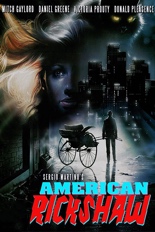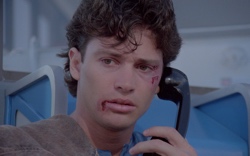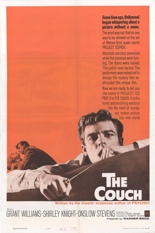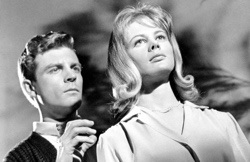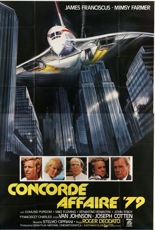
 Centigrade comes from the long line of confined-space thrillers, in which most — if not all — of the movie takes place in one cramped spot (e.g., Buried, Phone Booth, Devil, Cube and ATM). The difference with Centigrade is being inspired by true events — no supernatural elements here, folks!
Centigrade comes from the long line of confined-space thrillers, in which most — if not all — of the movie takes place in one cramped spot (e.g., Buried, Phone Booth, Devil, Cube and ATM). The difference with Centigrade is being inspired by true events — no supernatural elements here, folks!
Set in 2002, the film opens with very pregnant author Naomi (Genesis Rodriguez, Tusk) and her husband, Matt (Vincent Piazza, Rocket Science), waking up inside their car, only to find it snowed under. See, touring through Norway, they chose to pull over due to freezing rain while waiting for the storm to pass. Oh, it passed, all right, leaving impenetrable precipitation behind.
 Frustration boils as panic almost immediately sets in; complains Matt, who isn’t helping matters, “Can you not be so defeatist?” (Also not a calm influence? The score’s simple tinkling of a lone piano key.)
Frustration boils as panic almost immediately sets in; complains Matt, who isn’t helping matters, “Can you not be so defeatist?” (Also not a calm influence? The score’s simple tinkling of a lone piano key.)
Given the demands of Centigrade’s story and setting, if you’re going to be trapped with two people for weeks — even if compressed into 89 minutes — you’d damn well better like them. In his first feature, director Brendan Walsh (TV’s Nurse Jackie) seems to make a rookie mistake by not exactly ingratiating the couple with viewers right off the bat, but this proves to be wise; with both being so flawed and fraught with alarm, the tension between them starts at a level higher than normal. While it may wane from there, one part remains constant: wondering what you would do. —Rod Lott

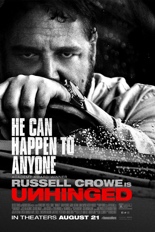 After everything from 1992’s
After everything from 1992’s  Directed with too loose of a grip on the part of Derrick Borte (
Directed with too loose of a grip on the part of Derrick Borte (